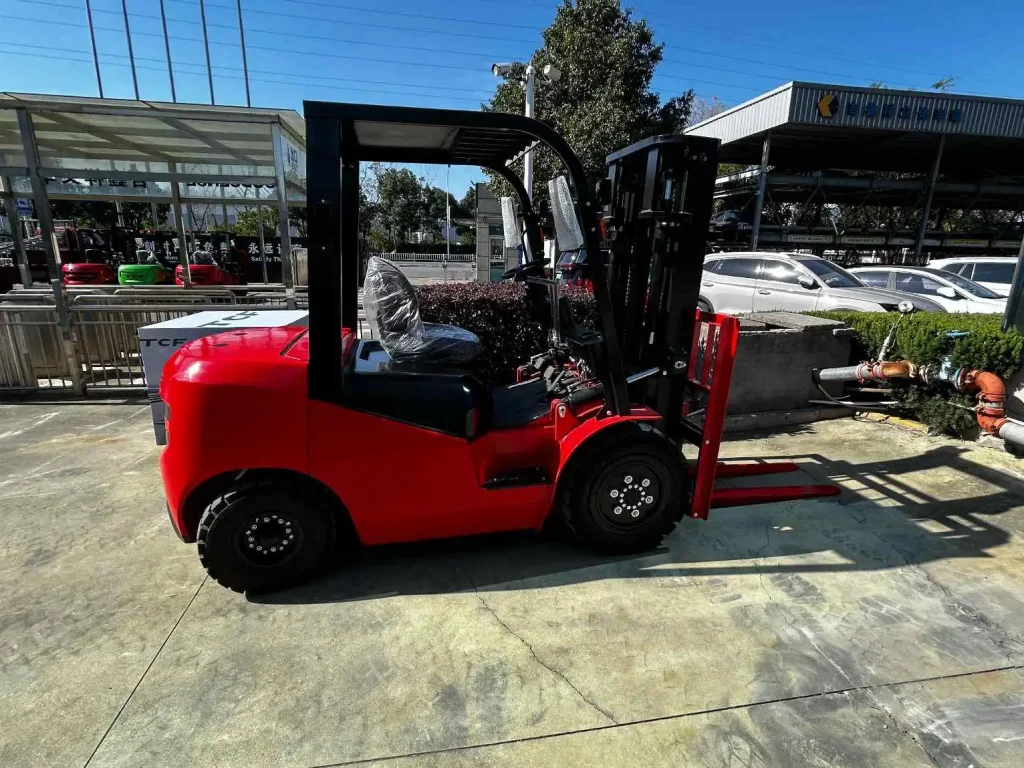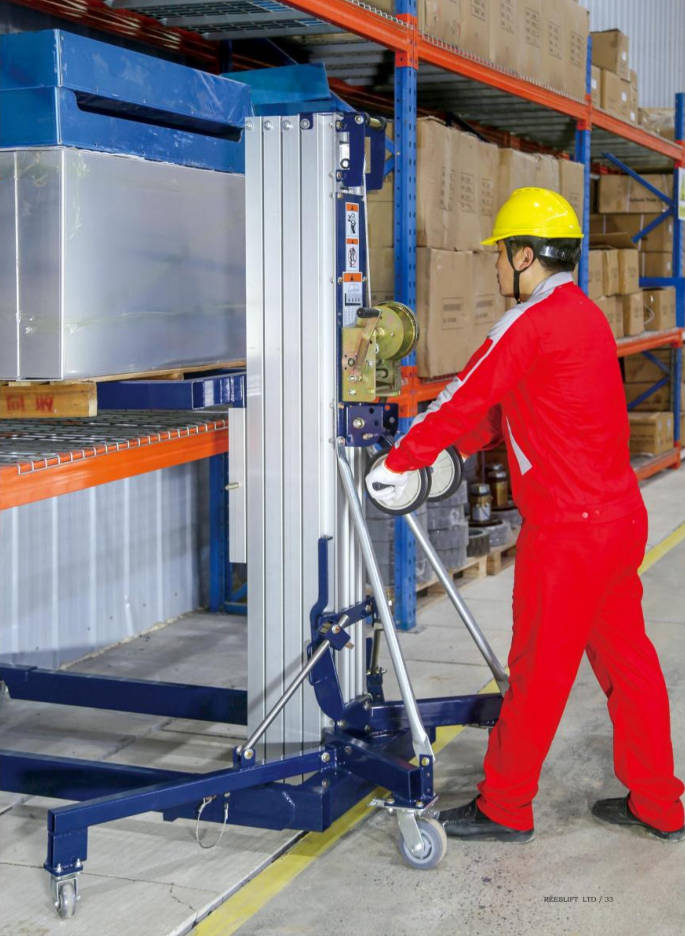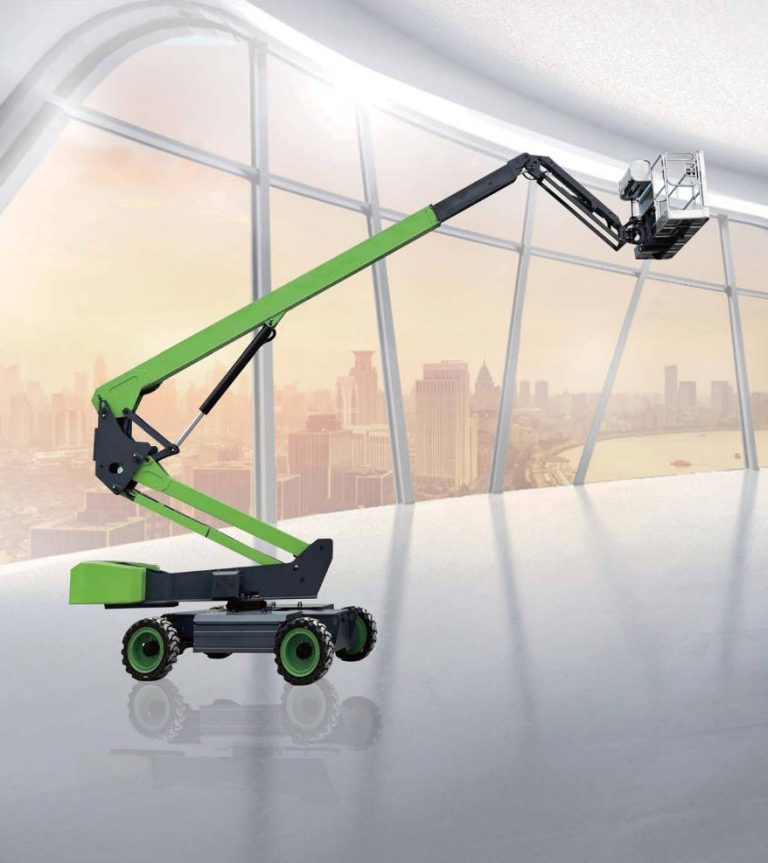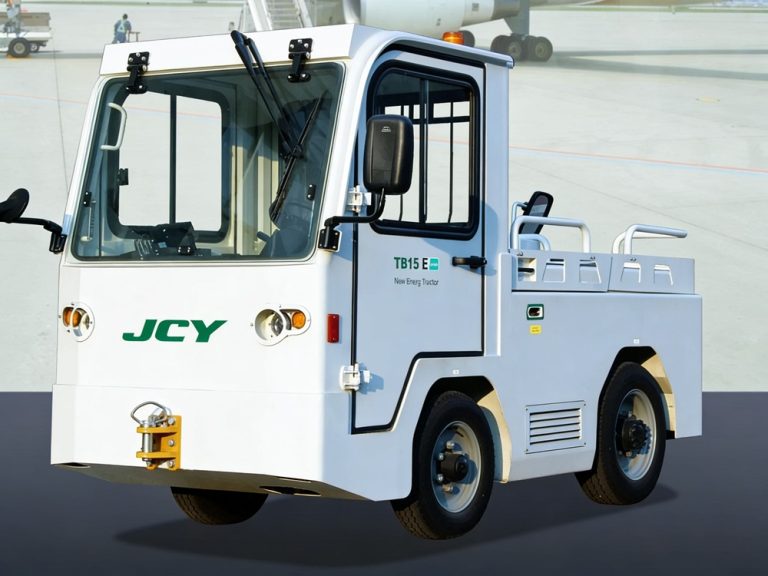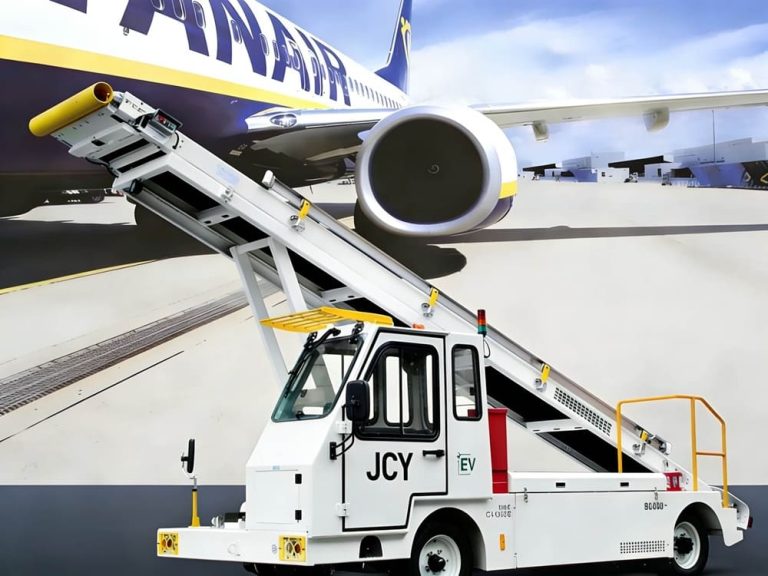In industrial settings, noise from machines is a major issue. This matters not just for comfort but also for safety and following rules. Among this equipment, the diesel forklift is important. It offers strong performance and handles tough jobs. However, it also makes substantial sound. Understanding where diesel forklift noise comes from and its effects is vital. This knowledge helps make workplaces safer and operations run better.
What Are the Main Sources of Noise in Diesel Forklifts?
Sound from diesel forklifts starts in several places. These include mechanical parts and how the machine works. Finding these noise origins is critical. It allows for good plans to control the sound.
Engine and Exhaust System Contributions
The main cause of diesel forklift noise is its engine. Burning fuel inside creates loud sounds. High-pressure fuel injection adds to this. Explosions in the combustion chamber produce powerful sound energy. Also, the exhaust system makes this noise louder. Gases rush out fast under high pressure. Mufflers can reduce some of this noise. Yet, older systems often don’t work well. Poor maintenance also hurts their effectiveness.
Transmission and Hydraulic System Noise
Another big noise source is the transmission and hydraulics. Gears engaging inside the transmission cause mechanical clatter. This happens especially during gear shifts. It also occurs under heavy load stress. Hydraulic pumps and motors make a steady whine or hum. This sound gets much louder when lifting heavy items. Operating at high speeds also increases the noise.
Tire and Ground Interaction Sounds
Contact between tires and the ground adds to overall noise levels. Solid rubber tires on concrete create a lot of vibration. They also cause loud rolling noise. This effect is stronger at higher speeds. Uneven ground makes the problem worse too.
JinChengYu FORKLIFT knows this well. They recognize excessive engine vibrations as key issues. Outdated exhaust systems are another pain point. Inefficient hydraulic parts also contribute heavily. Together, these factors push diesel forklift noise higher.
How Do Diesel Forklift Noise Levels Impact Workplace Safety?
Too much noise in factories and warehouses is serious. It affects more than just comfort. Worker health and safety face real dangers.
Effects on Worker Hearing and Long-Term Health
Long periods around high noise levels harm hearing. This damage is often permanent. Occupational hearing loss is very common. It happens often in noisy places. Warehouses and logistics centers are typical examples. Diesel forklifts run constantly in these locations.
Communication Barriers in Noisy Environments
High background noise from forklifts blocks talking. Workers struggle to hear each other. This leads to misunderstandings. Important warnings can be missed. Clear communication breaks down. Consequently, response times slow down. This happens during emergencies. It also affects regular work activities.
Increased Risk of Accidents Due to Auditory Masking
Auditory masking is a big danger. Loud background sounds cover up crucial noises. These include backup alarms or shouts of warning. This masking greatly raises accident risks. Pedestrians face more danger. Other vehicles in shared areas are also at risk.
JinChengYu FORKLIFT tackles these safety worries head-on. They engineer low-noise designs. These designs cut down auditory masking risks. They also help operators communicate more safely.
Which Environmental and Operational Factors Influence Diesel Forklift Noise?
Diesel forklift sound isn’t just about the machine. Surroundings and how it’s used matter greatly. These shape the final noise output.
Indoor vs. Outdoor Operation Settings
Sound acts differently inside versus outside. Walls and ceilings bounce noise around indoors. In enclosed spaces like warehouses, diesel forklift noise gets louder. This significantly increases worker exposure levels.
Surface Types and Load Weights
Hard surfaces like concrete make more tire noise. Softer surfaces, such as asphalt, are quieter. Heavier loads need more engine and hydraulic power. This creates greater mechanical stress. Therefore, it produces more noise.
Maintenance Practices and Equipment Age
Bad maintenance worsens all mechanical noise sources. Worn bearings in hydraulic pumps are one example. Leaks in exhaust manifolds are another. Older forklifts are especially noisy. They lack modern sound-dampening features.
JinChengYu FORKLIFT stresses regular maintenance schedules. They also offer modern equipment. This equipment uses advanced materials. These materials help reduce noise caused by wear over time.
What Standards and Regulations Govern Diesel Forklift Noise Levels?
Worker safety drives specific rules. These rules set acceptable workplace noise limits. Industrial vehicles like diesel forklifts fall under these regulations.
Occupational Safety Guidelines for Noise Exposure
Groups like OSHA (Occupational Safety & Health Administration) set rules. They define Permissible Exposure Limits (PELs) for noise. Typically, this is 90 dB(A) over 8 hours. Hearing protection becomes mandatory above certain points.
Industry-Specific Compliance Requirements
Some industries have tougher rules. Food processing and pharmaceuticals are examples. Hygiene rules might restrict using earplugs. Therefore, these industries need quieter machines inherently.
Recommended Decibel Limits for Industrial Equipment
Builders often target specific noise levels. Designs aim for under 85 dB(A) at the operator position. This is a common benchmark. Sectors focused on worker health widely use it.
JinChengYu FORKLIFT guarantees compliance. They meet major global standards. Their diesel forklifts consistently hit recommended decibel levels. This holds true in real working situations.
How Can Diesel Forklift Noise Be Effectively Reduced?
Noise cutting strategies fit two main types. Engineering controls change the machine itself. Administrative controls manage how people use it.
Engineering Controls and Soundproofing Measures
Better mufflers help reduce noise. Vibration-damping engine mounts are useful too. Encapsulated engine compartments block sound. Acoustic insulation panels absorb noise. All these target the sound at its source. Redesigning hydraulic systems brings benefits. Quieter pumps make a big difference.
Administrative Controls in the Workplace
Training operators matters a lot. Teach them low-noise driving methods. Avoiding sudden acceleration is one technique. Rotating shifts limits each person’s exposure time. Scheduling noisy tasks for off-peak hours helps too. These steps reduce overall team exposure.
JinChengYu FORKLIFT uses both approaches. They build in tech innovations. Enhanced muffler systems are one example. They also support training programs for users. The goal is lasting noise reduction in workplaces.
Why Is Choosing the Right Supplier Important for Managing Forklift Noise?
The supplier’s job is bigger than just selling. They affect long-term safety directly. Design quality and after-sales support are crucial.
The Role of Manufacturer Design in Noise Output
Makers who spend on R&D deliver quieter machines. They have better-engineered parts. Precision-machined gears cut noise. Optimized airflow systems help too. These features minimize unwanted mechanical resonance.
Importance of Quality Components and Build Standards
Cheap parts wear out faster. They cause more noise from vibration over time. High-quality materials resist fatigue better. They handle the load cycles common in warehouses. Diesel forklifts face these demands daily.
JinChengYu FORKLIFT uses top-grade components. They back this with strict quality checks. This ensures steady performance. It also keeps acoustic emissions low throughout the forklift’s life.
How Does JinChengYu FORKLIFT Provide Reliable Solutions for Low-Noise Diesel Forklifts?
As a trusted name in material handling,commitment to Advanced Engineering and Noise Reduction Technologies.JinChengYu FORKLIFT uses modern engineering methods. Precision-balanced engines are key. Acoustically insulated cabins block operator noise. State-of-the-art hydraulic systems run quietly. They design these specifically for low sound.
Proven Track Record in Supplying Durable, Compliant Diesel Forklifts
Their diesel forklifts are built tough. They also meet rules. They comply with local regulations. International safety standards are met too.
Customer Support Services Focused on Safety Optimization
Help starts before the sale. Consultations find site-specific needs. After the sale, training focuses on safe operation. JinChengYu FORKLIFT offers full support. This support minimizes hazards linked to forklift use.
Conclusion
Diesel forklift work naturally creates industrial noise. Engines and hydraulics are major sources. But their effect on safety can be lessened. Smart design choices are important. Proactive maintenance helps a lot. Following rules is essential. Picking the right supplier is strategic. Firms like JinChengYu FORKLIFT show how it’s done. Innovation plus customer focus creates safer spaces. Performance doesn’t need to suffer.
FAQs About Diesel Forklift Noise Levels
What is the average noise level produced by a diesel forklift?
Most standard diesel forklifts make 80–100 dB(A). Engine size changes this. Load weight matters too. The surface type affects noise. Maintenance condition plays a role.
Can older diesel forklifts be retrofitted to reduce noise?
Yes. Retrofits are possible. Options include better mufflers. Adding vibration dampers helps. Acoustic enclosures around engines cut noise. Upgrading hydraulic systems is effective. Switching to special tires lowers rolling noise on hard floors.
Are electric forklifts quieter than diesel models?
Yes. Electric forklifts make much less noise. They don’t have combustion engines. This makes them perfect for indoor use. Low-noise settings need them.


